My Dog Won’t Play Fetch Anymore [Help!]
It seems like every dog should know how to play fetch simply because that’s what dogs do. However, that isn’t always the case. Yes, dogs do have instincts to chase after things that interest them.
This is known as their prey drive. However, not all dogs have the same degree of drive. They also want to be rewarded for their behaviors.
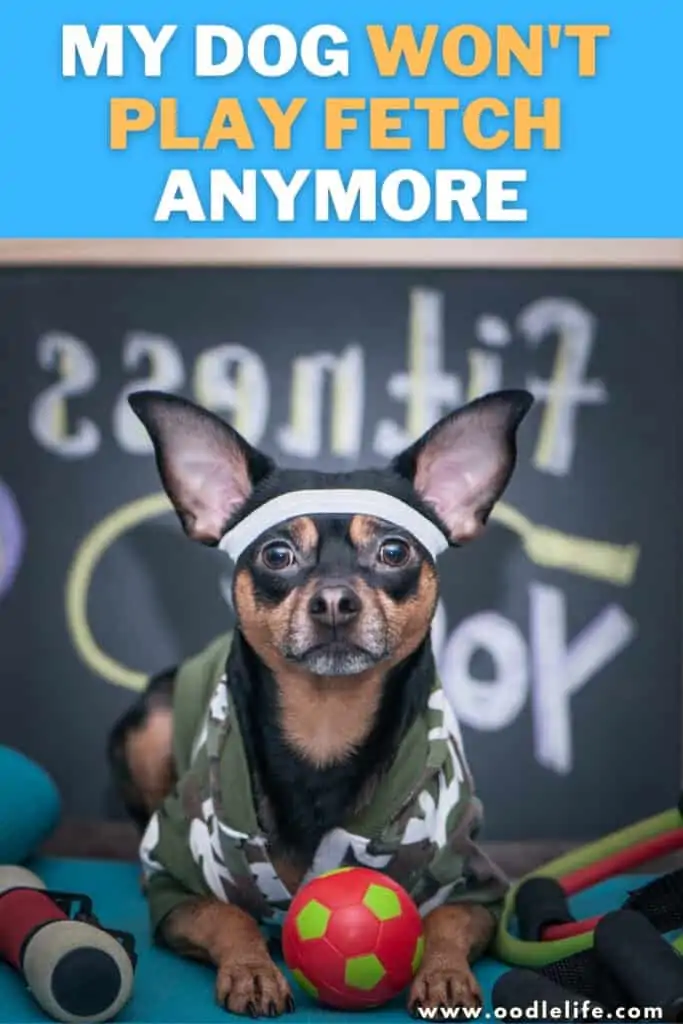
With this in mind, let’s look at why your best friend may not want to play fetch.
Is Playing Fetch in Their DNA?
First, let’s consider that some breeds are more laid back and less likely to want to fetch. It’s nothing personal against you–it’s just not in their nature. Their idea of fun might consist of being cuddled and petted rather than running and chasing.
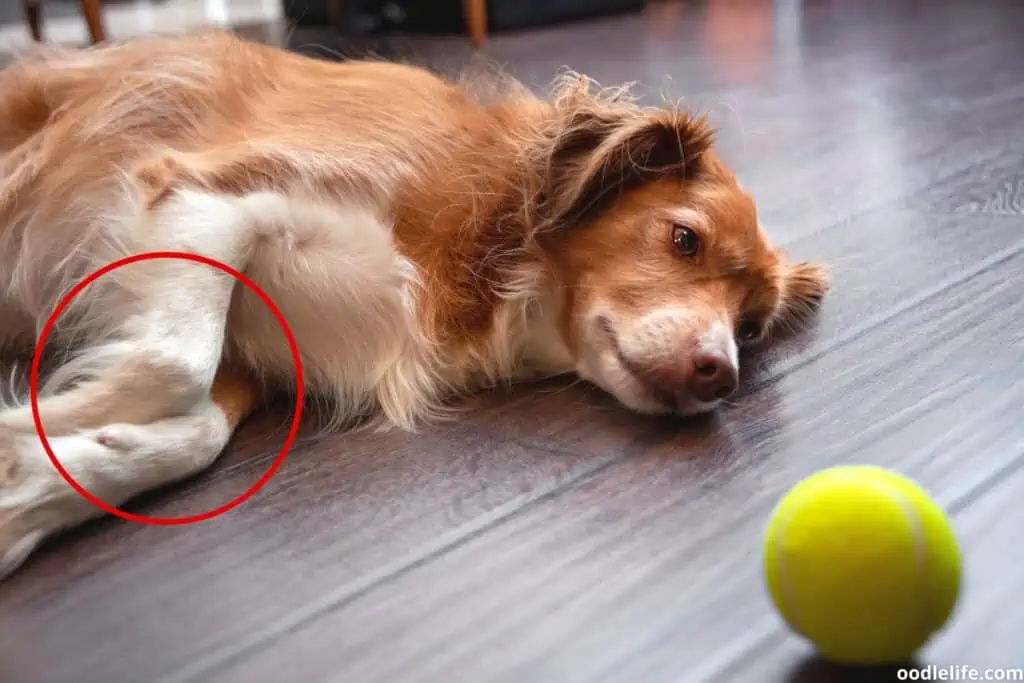
Small dogs tend to be cuddlers, but don’t assume that no small dogs want to fetch.
- Jack Russell Terriers: This smaller breed was created to hunt foxes. Their instincts are to fetch and return.
- French Bulldog: These are some of the most popular small-breed dogs. Their personalities usually suggest that they think they are bigger than they are. They have a love for fetching, but they are not swimmers. Make sure to play fetch securely on dry land.
Big dogs generally love to fetch. However, there are also big dogs that would prefer your cuddles instead of chasing after whatever it is you throw.
- Greyhound: These stoic dogs are famous for speed, but they usually have no interest in fetch. The idea of bringing back what you throw doesn’t usually excite the Greyhound. However, finding games that will allow them to run will make them happy.
- English Bulldog: While Frenchies may love chasing and retrieving, English Bulldogs aren’t really into the fetch game. They would prefer more physical contact with their owner at a much lower exertion level.
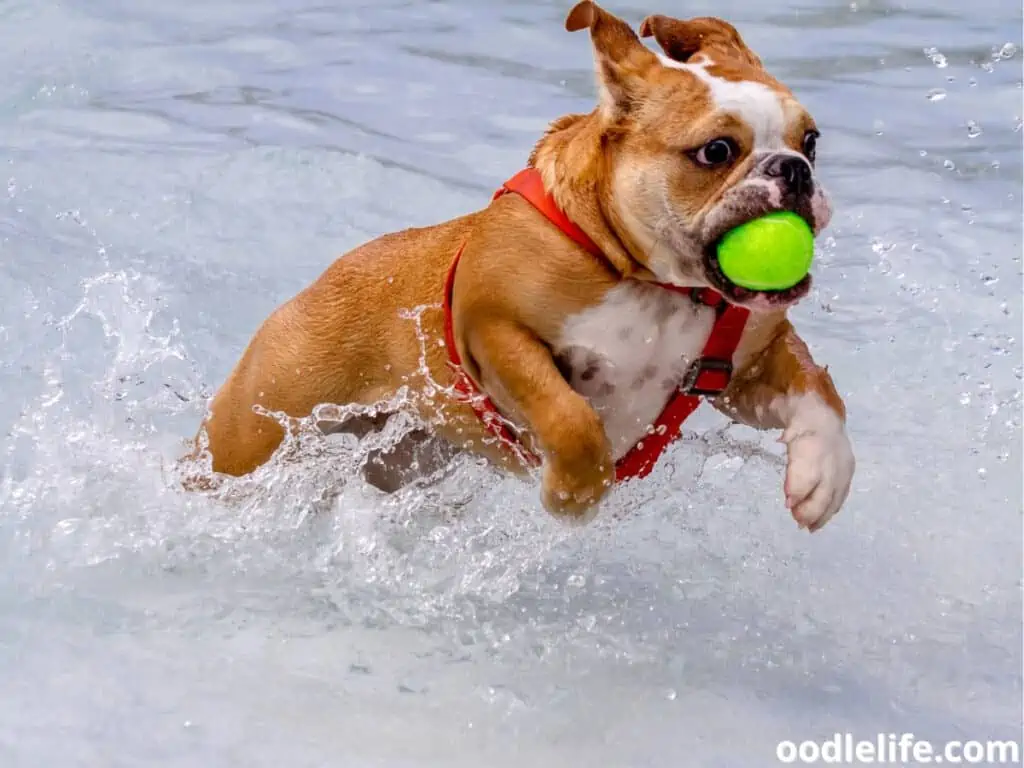
Do They Understand the Game?
Playing fetch sounds simple to us humans because the rules are in the title. However, when it comes to dogs, they might not quite get it without a bit of training. To train your dog to have an interest in the game of fetch, you must repetitively train them in the rules.
- Get them interested in the item. Choose a ball, stuffed toy, or frisbee. Let the dog sniff and tug at the toy, then release it to you. Let them develop an appeal for the item before you randomly throw it and expect them to go chasing after it.
- Be thorough in your commands. Use words like ready, get it, fetch, ball, come, drop it, release and/or let go. Whatever you use, be consistent.
- Reward and praise. This step is key to your dog fully understanding the concept of fetch. Until this point, the ball was the reward. Offering them praise and a treat for returning the ball to you will build the routine of bringing back the item. Some owners play fetch with two toys as the reward being trading one in for the chance to chase the other.
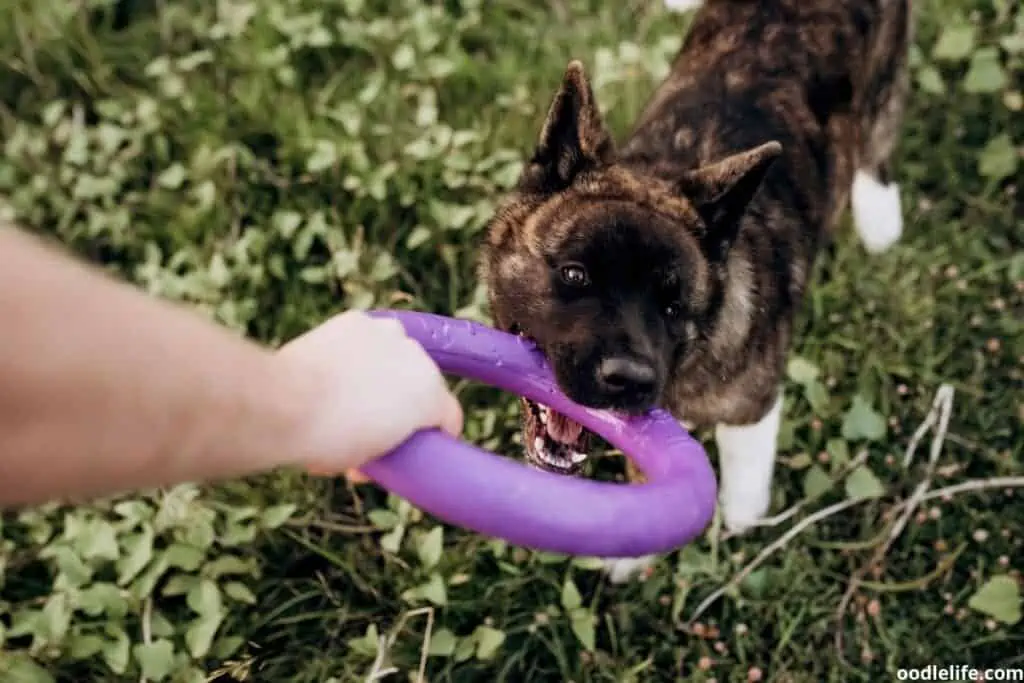
Do They Still Like the Toy?
It might sound surprising, but dogs don’t like everything. So, thinking that the toy you chose is the toy they would go chasing after could be an error on your part. A dog will not go chasing after something that carries no interest to them.
Give the dog options to see what item they desire and will be willing to fetch. If your dog used to fetch an item but doesn’t have an interest in it any longer, then something might have changed with the toy. Smells hold strong importance for doggies.
If you happened to wash the item or if another animal was playing with the toy, it could cause your pup to lose interest.
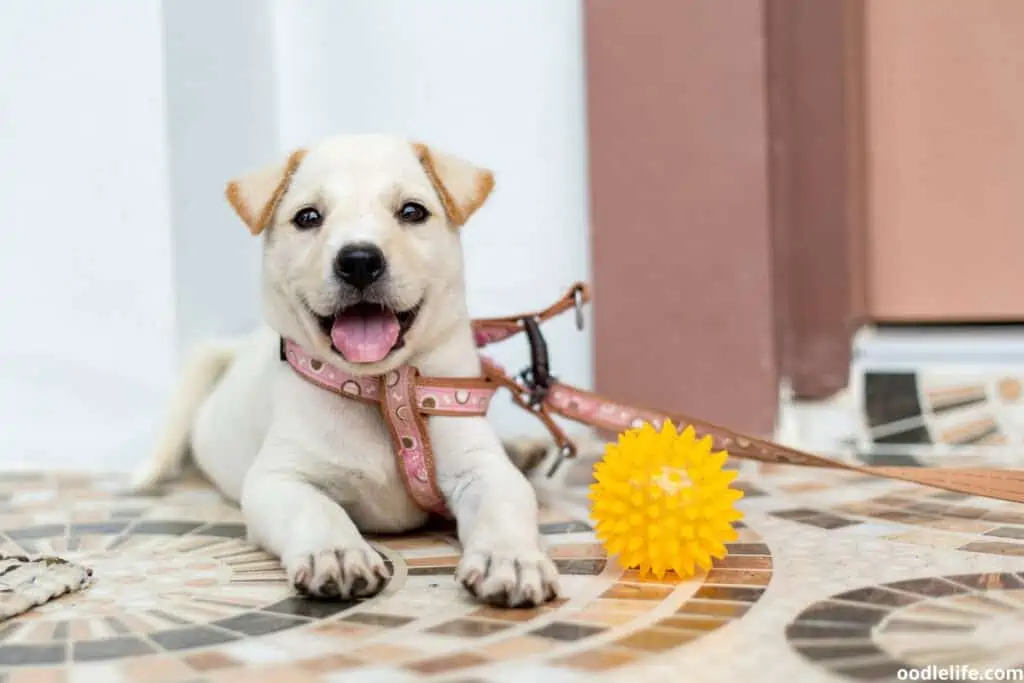
Is Your Dog Feeling Well?
If your dog has always played fetch but doesn’t seem to have an interest anymore, maybe it’s time to look for another reason. Not wanting to play fetch could be a symptom of an underlying condition. Keep an eye on the dog to see if they are displaying any other strange traits.

Joints and Bones
Try another form of play. If the dog doesn’t want to play other games, perhaps they could be having joint problems or sore muscles.
Upset Stomach
If your dog has an upset tummy, they probably won’t want to exert themselves until their stomach feels better. Dehydration can cause a similar result. If they seem to have issues eating or drinking, it’s best to talk to their vet.
Whimpering in Pain
Arthritis can develop in older dogs, causing them to slow down. If this is the case, try throwing things at a drastically shorter distance or find another game to play to keep the old dog feeling engaged.
Senses are Failing
If a dog’s senses start deteriorating, it can change their ability to play the way they used to. If the dog’s eyes are going, they will be less likely to see where you threw the toy. If the dog’s sense of smell fades, the dog will be easily distracted by any smell it can trace.
Lastly, hearing is also an important sense to have in the game of fetch. If the dog’s hearing has diminished, your dog might struggle with commands and the location of where the toy dropped. Talking with your vet will help determine if any loss of these senses could be the culprit.
Is the Dog Simply Not Interested in Fetch?
It might not be a big deal that your dog doesn’t want to chase after an object whizzing through the air. Whether your dog has never been interested or has recently stopped playing fetch, it could be as simple as the dog having other interests on their mind. Your dog may play fetch a few times but then give up quickly out of loss of interest.

Did the Dog Find Something More Interesting?
Smells are a strong physical and emotional experience for dogs. While playing fetch, if your dog picks up on a scent that’s more interesting than the one on their tennis ball, the game can come to an abrupt end without warning.
The outside world, with all its scents and moving pieces, can cause many more distractions than usually what’s indoors. However, a dog can just as easily be distracted by blooming spring flowers as they are by someone cooking a fragrant dinner.
Is Your Dog Bored?
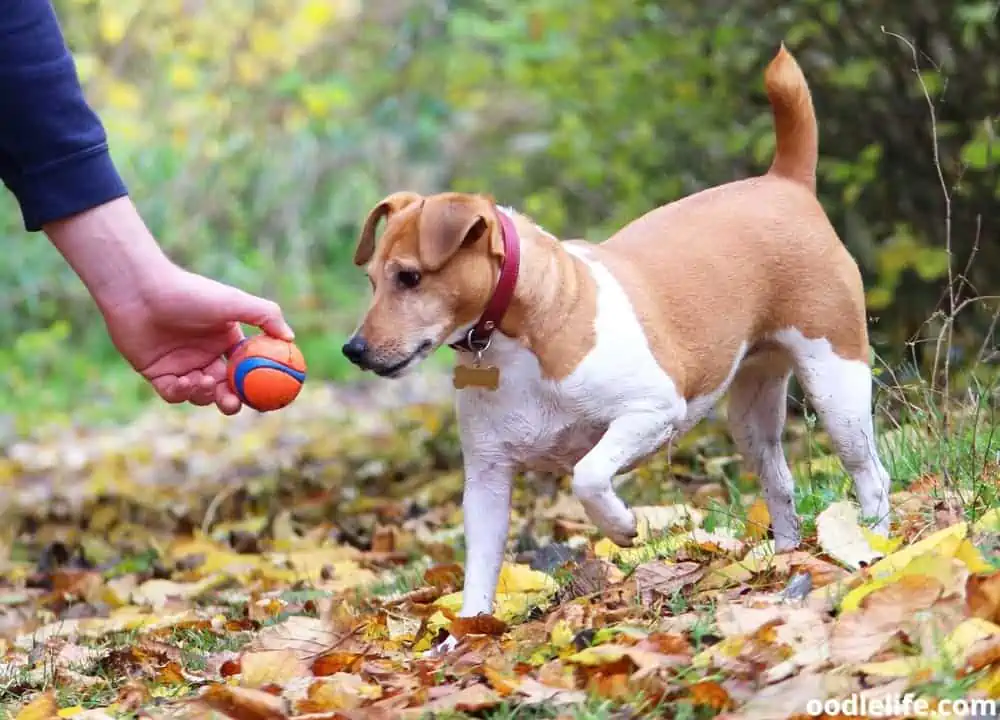
Imagine playing one game, every day, for the rest of your life. It sounds kind of boring. Well, dogs can get bored, too.
Your dog might be done playing fetch for the time being. It doesn’t mean forever, but it does mean that you need to find something else that might appeal to the dog.
There are plenty of other activities to introduce to your best friend that might pique their interest. Try playing tug-of-war with a pull toy to keep your dog active. Another option is doing a treat hunt, where you hide treats around the house and walk around with your best friend to see if they can find the treats.
Finding new ways to play will enrich your dog’s life.
Conclusion
If you have concerns about your dog’s attention and ability to play fetch, it’s always good to consult your vet. They can help diagnose your dog or ease your fears. Not all devoted dogs want to fetch, but they all certainly want their owner’s love and attention.
Finding ways to spend time with your dog will show your devotion in return.